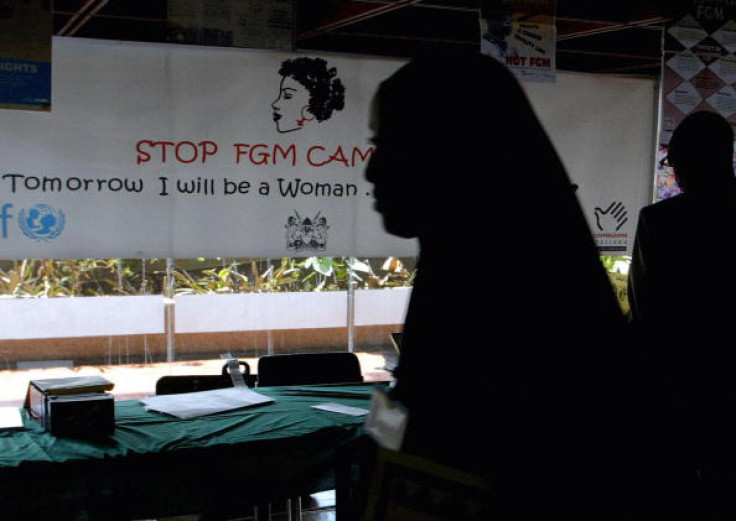Female genital mutilation in Nigeria mostly practised in Christian and traditional communities
Despite bans millions of girls and women are still subjected to genital mutilation.
Thousands of girls in Nigeria are still subjected to female genital mutilation in spite of laws banning the practice, a rights group has claimed. The report was released by 28 Too Many, an organisation that aims to end FGM worldwide.
In 2015, former Nigerian president Goodluck Jonathan passed a law banning FGM. The legislation also forbids men from abandoning women and children without economic support.
However, the report claimed around 24.8% of girls and women aged between 15 and 49 still undergo FGM in Nigeria, where an estimated total of 20 million women and girls have undergone the practice.
"It is a positive message that there is a law in place, but there is a work to be done," Amy Hurn, research project manager at 28 Too Many, told IBTimes UK.
"Thirteen of the 36 states have legislation that bans FGM but the other states have to still adopt the federal law in their own way. It takes time for each state to get their laws in place and then there is a challenge of implementing."
The organisation said the practice is more prevalent in urban areas (32%) compared to rural ones (19.3%) and among Christian and traditional religions in the south-east (49%) and south-west (47.5%). The north-east and north-west areas of the country have the lowest prevalence.
Female genital mutilation in Nigeria
"The prevalence of the practice is lower among Muslims in the north of the country and it is more prevalent among the Christians and traditional religions in the south," Hurn said. "FGM is practiced across all religions and that's a really important message for Nigeria."
The main reasons behind the practice in Nigeria is to preserve virginity and prevent extra-marital sex. Women also told the organisation FGM is conducted to foster social acceptance among communities and enhance "better marriage prospects".
"'More sexual pleasure for a man' was also cited by men," the report said. "Although FGM is not required by any religious script, overall, 15% of women and 23.6% of men believe it is required by their religion, particularly men (39.9%) and women (33.1%) practising traditionalist religions and men (30%) practising Islam."
Nigeria up close: Check out our Flipboard magazine
What is FGM?
Usually carried out for cultural and religious purposes, it involves the alteration and removal of female genitals for non-medical reasons.
The UN defined the practice as a human right violation and "an extreme form of discrimination against women and girls. "
Haemorrhage and infection can cause girls, usually under the age of 15, to die.
Long-term consequences include recurrent bladder or urinary tract infections, cystits, infertility, childbirth complications and newborn deaths.
FGM is practised in countries in Africa, Asia and Latin America. In August 2015, Somalia announced it intended to implement a nationwide ban on FGM. The practice has been also outlawed in another 18 African countries, including Benin, Central African Republic, Egypt and South Africa.
The UN has warned that more than 140 million girls and women alive today have undergone some form of FGM and, if it continues, some 86 million additional females worldwide would be subjected to it by 2030.

© Copyright IBTimes 2024. All rights reserved.






